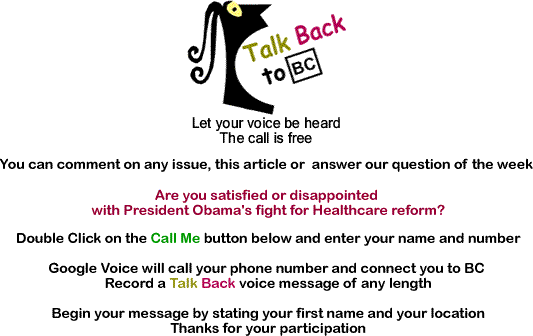
|
||||||||||||||||||||||

|
|
 |
|
When
the
The
Cold War fears were energized anew most days of the week and the
people were kept in a state of high anxiety. This condition became
a way of life as we became steeped in fear and paranoia over possible
nuclear attack or the imminent foreign takeover of the Our great industries turned their productive capacity to the building of weapons systems and defense systems - whether they worked or not. The cost did not matter, since our national life was at stake. The “American way of life” was at stake and it needed to be defended at all costs. For
long years, the As far as the American people knew, the Soviet Union wasn’t doing badly, either, since their people were not rising up against the system and their defense and military sectors seemed to be growing at the same (or greater) rate than ours. Things are not always as they seem.
Collapse
of an empire such as that of the Soviets should have been a warning
to others, particularly to the The
Berlin Wall came down and the Soviet Union collapsed and became,
once again, That
is, they would see a change in the priorities of the nation, that
human needs would, for the first time in a half-century, take precedence
over weapons and the military. That was an unrealistic expectation.
The Soviet Union, now Instead, what we’ve seen is an ever-increasing military and defense budget, a sharply reduced concern for the vulnerable members of the society and of wage-working men and women, and a sharply-increasing disparity in wealth between the top five percent of Americans and the rest of us. Unemployment - real unemployment - stands between 10 and 20 percent. The people are suffering. When
the The new Russian leaders allowed the “free market” to rule, apparently under the impression that, since capitalism and free markets defeated their economic form, a and some form of capitalism. The result was a disaster. Members of a rapacious class of entrepreneurs set out to become rich and powerful - fast. And, they did, but the people suffered greatly and the government stepped in - in their own inimitable fashion - to allay the suffering of the people. At
the time of the collapse of the Berlin Wall, celebration seemed
a bit premature. The Soviet Union and the
Corporate
There isn’t much that can not be bought or influenced by money, but working people don’t have spare money to contribute to the coffers of the powerful. Being
the only superpower can be bad for a nation’s health. It certainly
is deadly for its people, for they are left out in the cold, literally.
Their prospects are not good, unless they organize to make fundamental
change in their economic, political, and governmental structures,
which have become what the founders of A nation’s people who are polarized will not solve society’s problems. We have lots of angry people and those on the right don’t even seem to know what they’re angry about. These are not rich people. They are working people, and they have been whipped into frenzy by the radio and television noisemakers, who dispense their particular brand of vitriol and hate for hours every day, in every part of the country.
Those who act out of ignorance and allow themselves to be led by demagogues, who are paid 1,000 times as much per year as a wage-worker, should be examining the motives of the people who daily stir their most base instincts. It should not be news that their interests are not the same. Still, they follow. The U.S. may be close to the ground after the fall of its prop (the other superpower) a couple of decades ago, but, low point or not, the people need to stop listening to the demagogues, educate themselves about the reality of their lives, and understand that the second side of the triangle was never going to stay up by itself. The people are going to have to do the heavy lifting and make the changes themselves. BlackCommentator.com Columnist, John Funiciello, is a labor organizer
and former union organizer. His union work started when he became
a local president of The Newspaper Guild in the early 1970s. He
was a reporter for 14 years for newspapers in
|
|
 |
|
Any BlackCommentator.com article may be re-printed so long as it is re-printed in its entirety and full credit given to the author and www.BlackCommentator.com. If the re-print is on the Internet we additionally request a link back to the original piece on our Website. Your comments are always welcome. eMail re-print notice
If you send us an eMail message we may publish all or part of it, unless you tell us it is not for publication. You may also request that we withhold your name. Thank you very much for your readership. |
|
| |
|
| September24
, 2009 Issue 343 |
|
| Executive Editor: Bill Fletcher, Jr. |
| Managing Editor: Nancy Littlefield |
| Publisher: Peter Gamble |
| Est. April 5, 2002 |
Printer Friendly Version
in resizeable plain
text format or pdf
format. |
 |

|
| |
| |





























 The
Soviets went into
The
Soviets went into 
 Each
empire has its own unique trip to the ground. We’ve seen
Each
empire has its own unique trip to the ground. We’ve seen  We’ll
find no solutions to our problems until there can be rational discussion
and debate. There can be no discussion or debate of our problems
among the people if they continue to be polarized. People are hurting
in
We’ll
find no solutions to our problems until there can be rational discussion
and debate. There can be no discussion or debate of our problems
among the people if they continue to be polarized. People are hurting
in 









